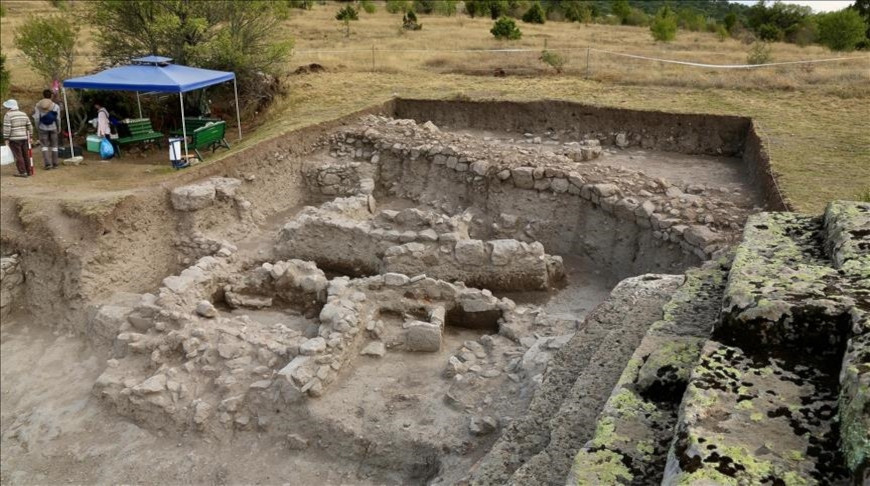
ESKISEHIR, 11 October (BelTA - Anadolu) - Archeologists discovered
ancient ovens and hearths, thought to be belonging to Phrygians who
inhabited the region around the seventh century BC, during excavations
at Midas Castle in Eskisehir in central Türkiye.
The dig, which began in 2022, took place in the three-kilometer (1.8-mile) Midas Valley, home to the famous Yazilikaya Monument.
Led by archeologist Yusuf Polat from Anadolu University, the excavation uncovered significant findings in the 26-hectare (88-acre) Midas Castle area.
Researchers found seventh century BC ovens and hearths near a Phrygian rock altar. The Phrygians were an ancient civilization in Anatolia.
These structures were used for cooking sacrificial animals and baking bread during religious rituals, experts determined.
Polat told Anadolu the team focused on the "Agdistis sacred area" atop the rocky plateau. "We identified areas with hearths where ritual preparations took place, featuring simple stone foundations and wooden structures," he said.
Preliminary findings dated the sacred area to the 8th-7th century BC, or Middle Phrygian period. Lydian ceramics from the 7th-6th century BC and Roman-era artifacts from the 1st-2nd century were also discovered at the site.
Inhabited for 250,000 years
The team also found four rock basins carved into the rocky platform, along with a rock idol representing the "mother goddess Matar." For Phrygians, Matar Kubilea is a goddess of nature, ruler of foreign animals, protector of cities and young girls.
"The presence of rock basins and the nearby idol provided concrete evidence of prosperity rituals blessed by the mother goddess," Polat noted.
The ovens and hearths offered crucial insights into ritual organization, added Polat.
Researchers also determined the area had been inhabited for 250,000 years.
"We found Lower Paleolithic stone tools during surface surveys. Almost all subsequent civilizations lived in this geography, as these deep valleys were fertile and suitable for defense," Polat explained.
The dig, which began in 2022, took place in the three-kilometer (1.8-mile) Midas Valley, home to the famous Yazilikaya Monument.
Led by archeologist Yusuf Polat from Anadolu University, the excavation uncovered significant findings in the 26-hectare (88-acre) Midas Castle area.
Researchers found seventh century BC ovens and hearths near a Phrygian rock altar. The Phrygians were an ancient civilization in Anatolia.
These structures were used for cooking sacrificial animals and baking bread during religious rituals, experts determined.
Polat told Anadolu the team focused on the "Agdistis sacred area" atop the rocky plateau. "We identified areas with hearths where ritual preparations took place, featuring simple stone foundations and wooden structures," he said.
Preliminary findings dated the sacred area to the 8th-7th century BC, or Middle Phrygian period. Lydian ceramics from the 7th-6th century BC and Roman-era artifacts from the 1st-2nd century were also discovered at the site.
Inhabited for 250,000 years
The team also found four rock basins carved into the rocky platform, along with a rock idol representing the "mother goddess Matar." For Phrygians, Matar Kubilea is a goddess of nature, ruler of foreign animals, protector of cities and young girls.
"The presence of rock basins and the nearby idol provided concrete evidence of prosperity rituals blessed by the mother goddess," Polat noted.
The ovens and hearths offered crucial insights into ritual organization, added Polat.
Researchers also determined the area had been inhabited for 250,000 years.
"We found Lower Paleolithic stone tools during surface surveys. Almost all subsequent civilizations lived in this geography, as these deep valleys were fertile and suitable for defense," Polat explained.













